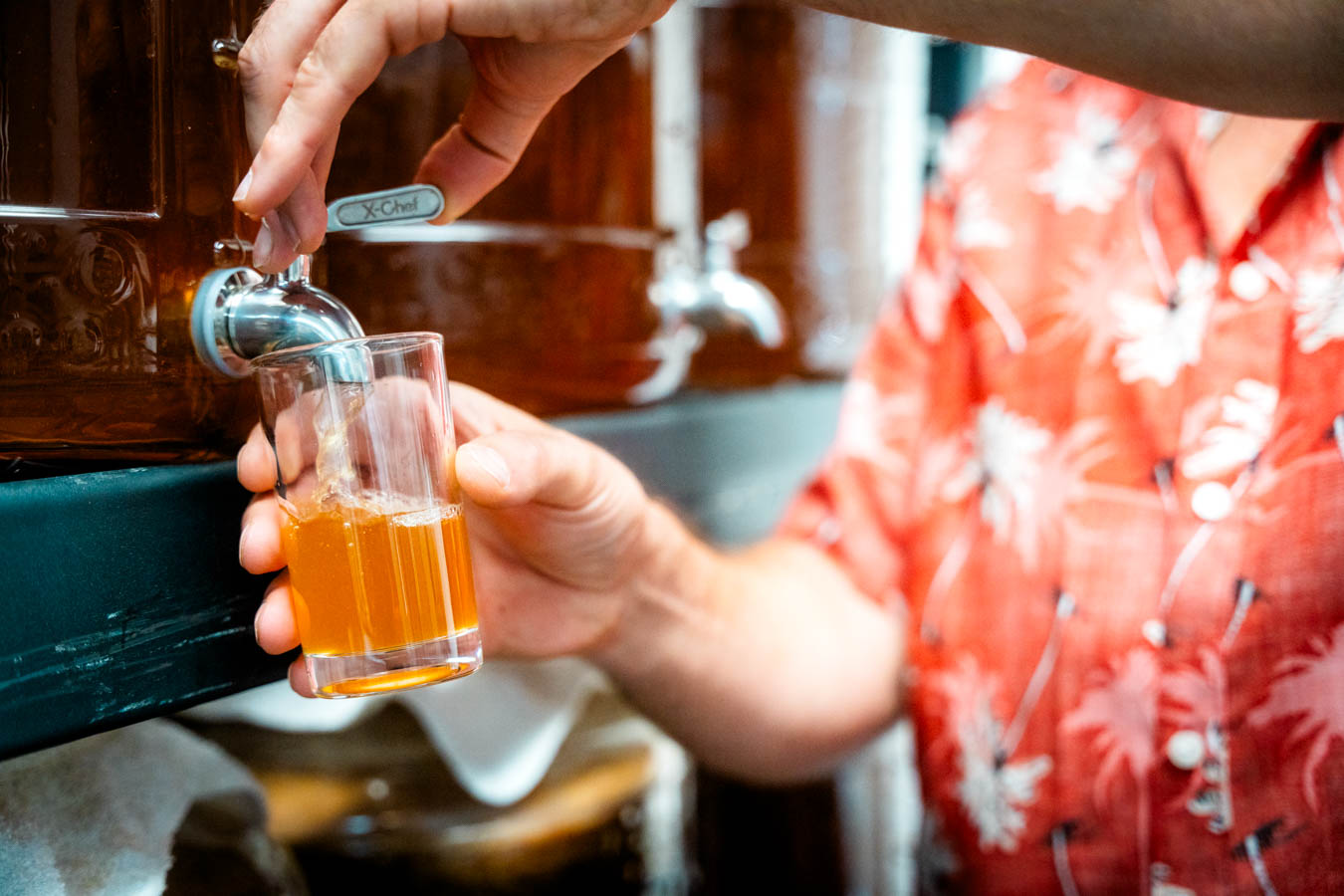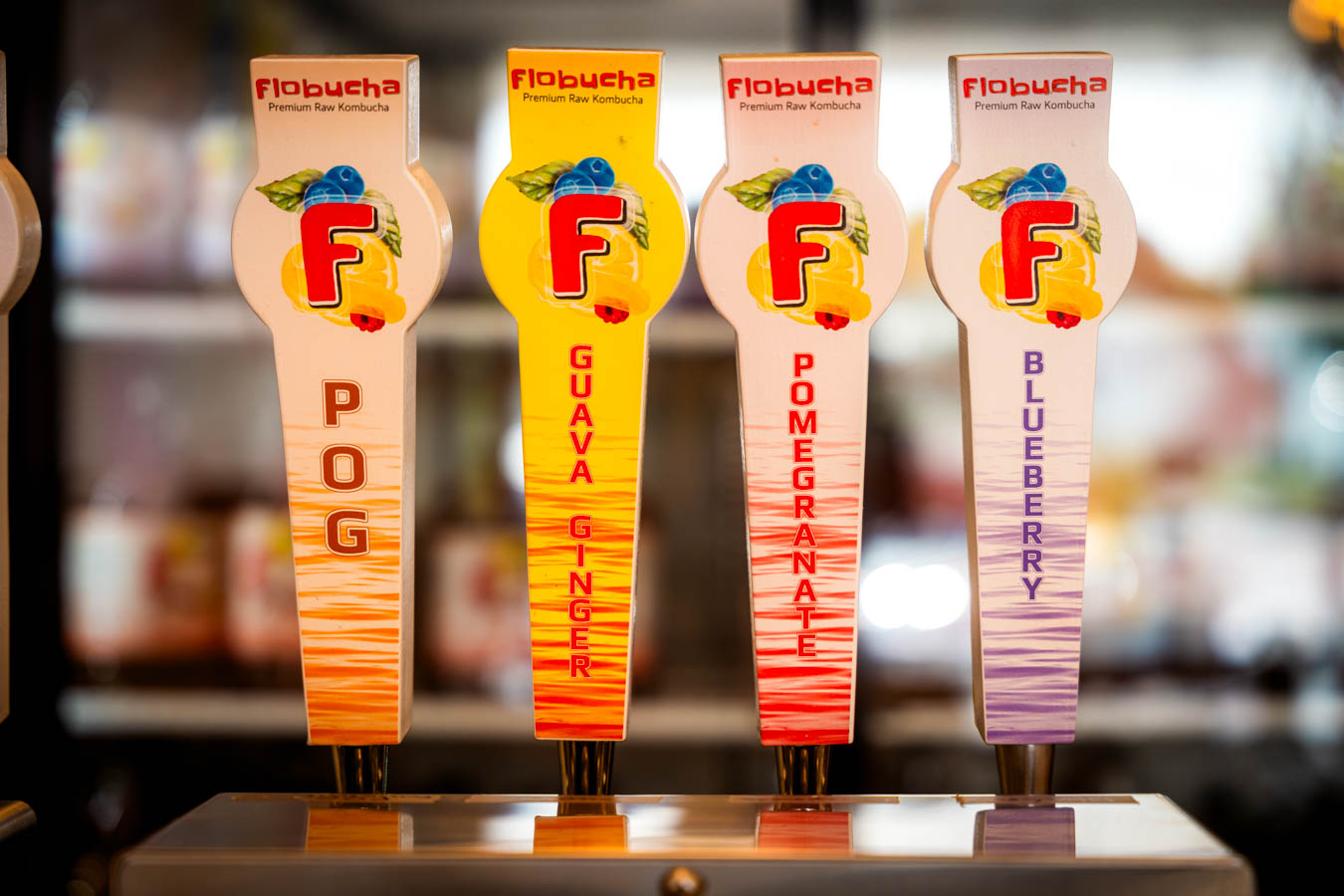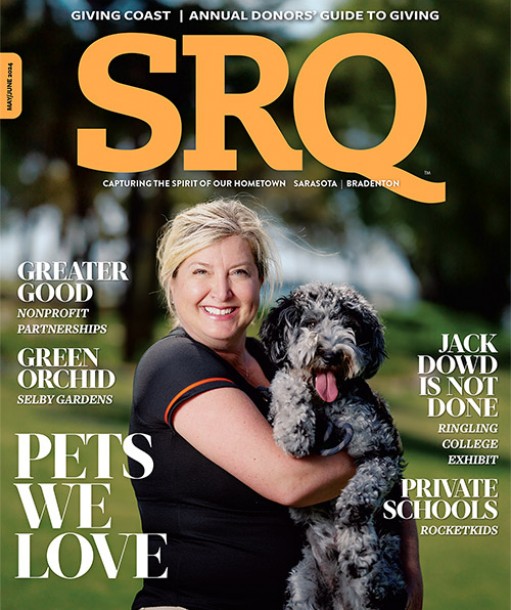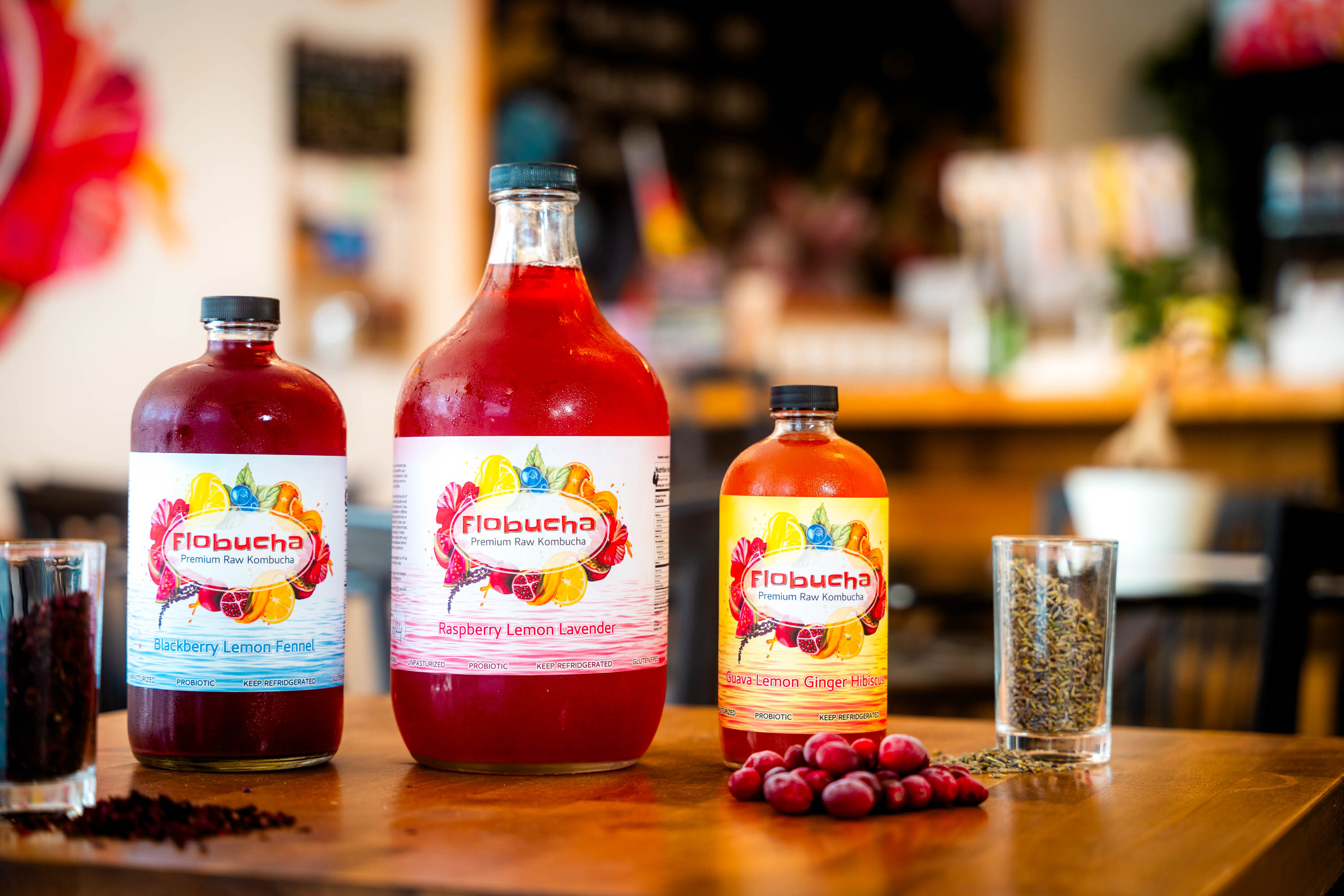On a sleepy afternoon in Gulf Gate, something exciting is brewing. Florian Trinkwalder, the founder and owner of Flobucha, tends to his latest batches of kombucha, as regular customers trickle in for refills of this fermented tea. “Kombucha is a drink known for its health benefits, including supporting gut health and the immune system in general. It’s probiotic, prebiotic, and has a lot of antioxidants and vitamins,” says Trinkwalder, who discovered the benefits of the beverage about five years ago, when he decided to embrace two lifestyle changes: eliminating sugar from his diet and not drinking alcohol.
His journey led him to discover kombucha, which worked wonders for his overall health. “Gut health, mental health and emotional health are connected. Many of the neurotransmitters, like serotonin, that you need in the brain are produced in the gut,” he adds. “Getting my gut in check was a huge boost to my mental and emotional health.” When he first began drinking kombucha, Trinkwalder purchased it in stores. But he learned that transportation, storage and the process of pasteurization—which kills the good bacteria in the tea—can render many store-bought varieties less beneficial than their homemade cousins.
“My wife got me a kombucha home brewing kit for Christmas in 2019, and that’s when I started brewing at home. I didn’t look at what others were doing for flavoring; I just started with a clean slate and invited my friends over for taste parties,” Trinkwalder says. A software engineer by trade, he created permutations of berry, fruit, herbal and floral flavors. “I gave my friends a sheet where they could rate everything, from taste to color to texture, on a scale of one to 10, and anything that scored an eight or higher, I pursued further,” he adds. Those same friends soon became eager customers, and even strangers showed up at his home, asking, “Are you the kombucha guy?” in hopes of purchasing the product. “At some point, I figured ‘I’ve got something here,’” he says.

After over a year of obtaining a space and licenses, Trinkwalder opened Flobucha in October 2022. “I wanted to be around people and work with my hands,” he adds. “As a software engineer, you work with your mind, but brewing something and making a product by hand is so fulfilling.” In the back room of his shop, he brews the drink, paying the utmost attention to flavor profiles. Organic black tea is steeped, then organic cane sugar is added to it. Once cooled to room temperature, the tea is added to a fermenter with SCOBY (a symbiotic culture of bacteria and yeast), which not only eats the sugar and caffeine but creates good acids and enzymes. The tea then reaches the second fermentation stage, where fruit flavors are added and the drink obtains its characteristic bubbliness. “Most producers treat or pasteurize their kombucha and then add probiotics so that they can call it a probiotic drink. Why do that if you have a natural probiotic drink?,” he says. “Ours is never treated; it’s unfiltered, unpasteurized, raw kombucha and it’s super fresh. The fresher your kombucha, the better the health benefits and taste.”
Trinkwalder explains that, because he brews his kombucha fresh and hand distributes it to local businesses, its flavors are well-preserved. Whereas many store-bought kombuchas cater to the palates of beer and cider drinkers, Flobucha (with rich and fruity elements) is more in line with that of a wine drinker. Noteworthy flavors include the Pomegranate Lemon Ginger Lavender, which was inspired by Trinkwalder’s wife’s suggestion to add lavender to the beverage. The POG, made from passionfruit, orange and guava, is Flobucha’s interpretation of a beloved Hawaiian drink of the same name. While a 16-ounce bottle of Flobucha only contains between one and two grams of sugar, it still tastes pleasantly sweet, thanks to the strategic use of other flavor carriers (like organic lemon). The shop carries staples of both on tap, in kegs and in smaller sizes, ranging from 16-ounce bottles to half-gallon glass growlers, which are sterilized and reused. Flobucha designates two taps for seasonal flavors, or those suggested by customers, and brews kombucha-based non-alcoholic wines that cater to the trend of non-alcoholic drinks.

“When I stopped drinking alcohol, I missed just going somewhere, hanging out with people, socializing and going for a drink but not being immersed in the whole drinking culture. I think a non-alcoholic bar was missing, and that’s what we have here at Flobucha,” Trinkwalder says. In the shop and taproom, patrons can enjoy a refreshing beverage, Wi-Fi, and oftentimes, live music, open mics and food pop-ups. Since Trinkwalder started the company, it has grown by leaps and bounds, thanks to other businesses like Crop Juice and Florence and the Spice Boys, and loyal customers that have spread the company’s mission across the community. “In my experience, it takes about three to five years to reach a point where your business is self-sufficient, and we reached that point much earlier,” he adds. “We are very grateful to our customers who put us on the map, for helping us carry our message forward.”










